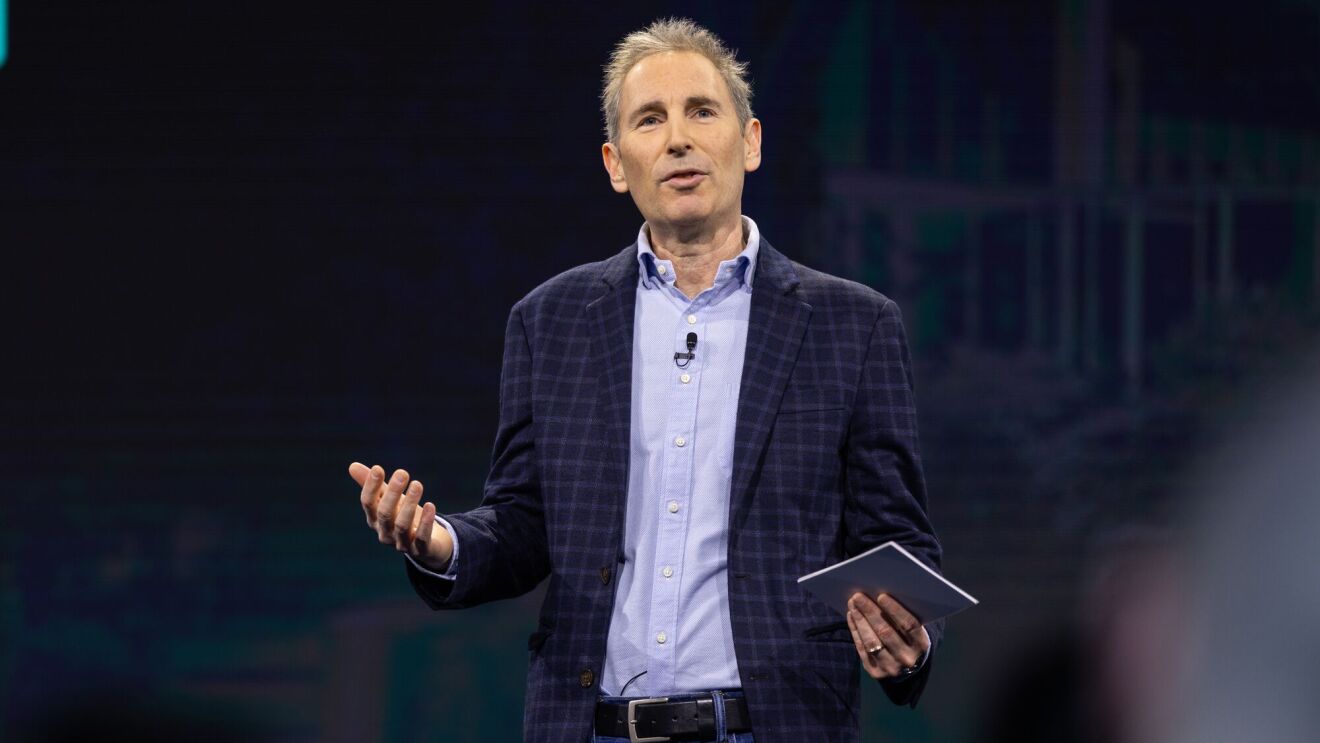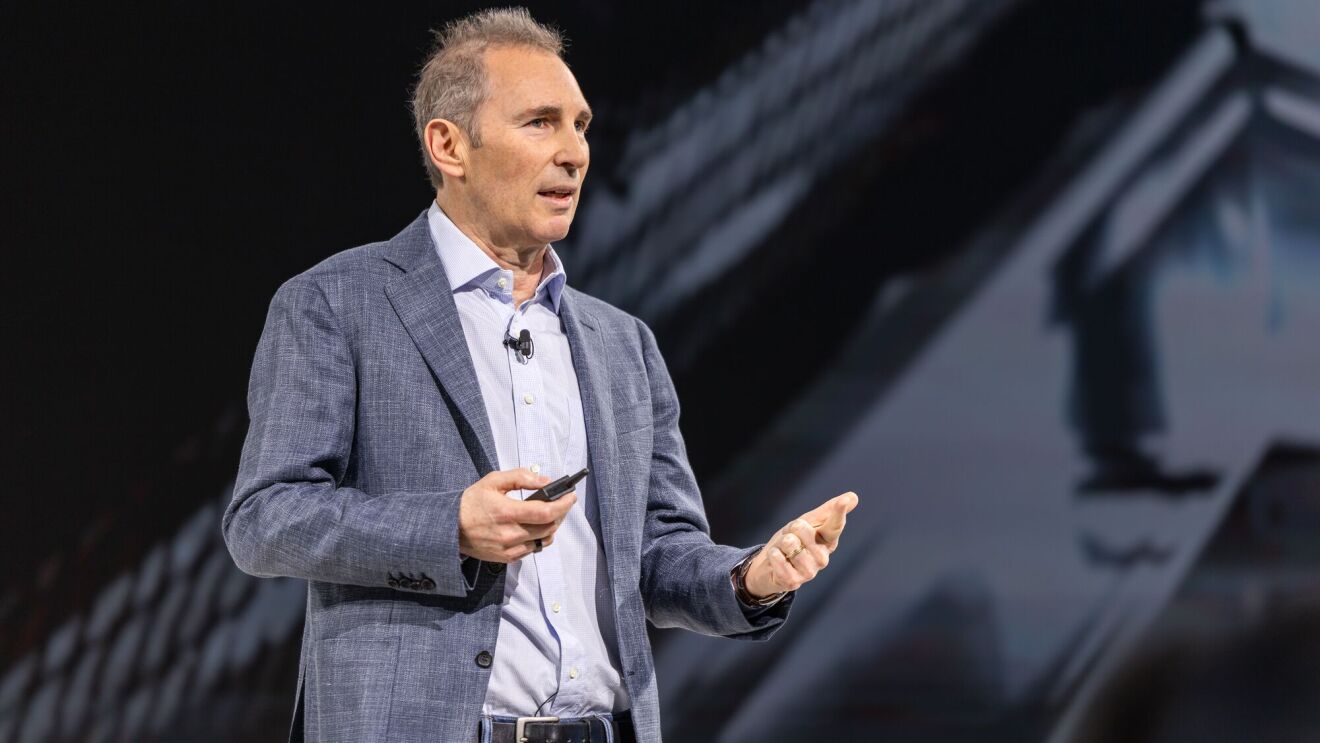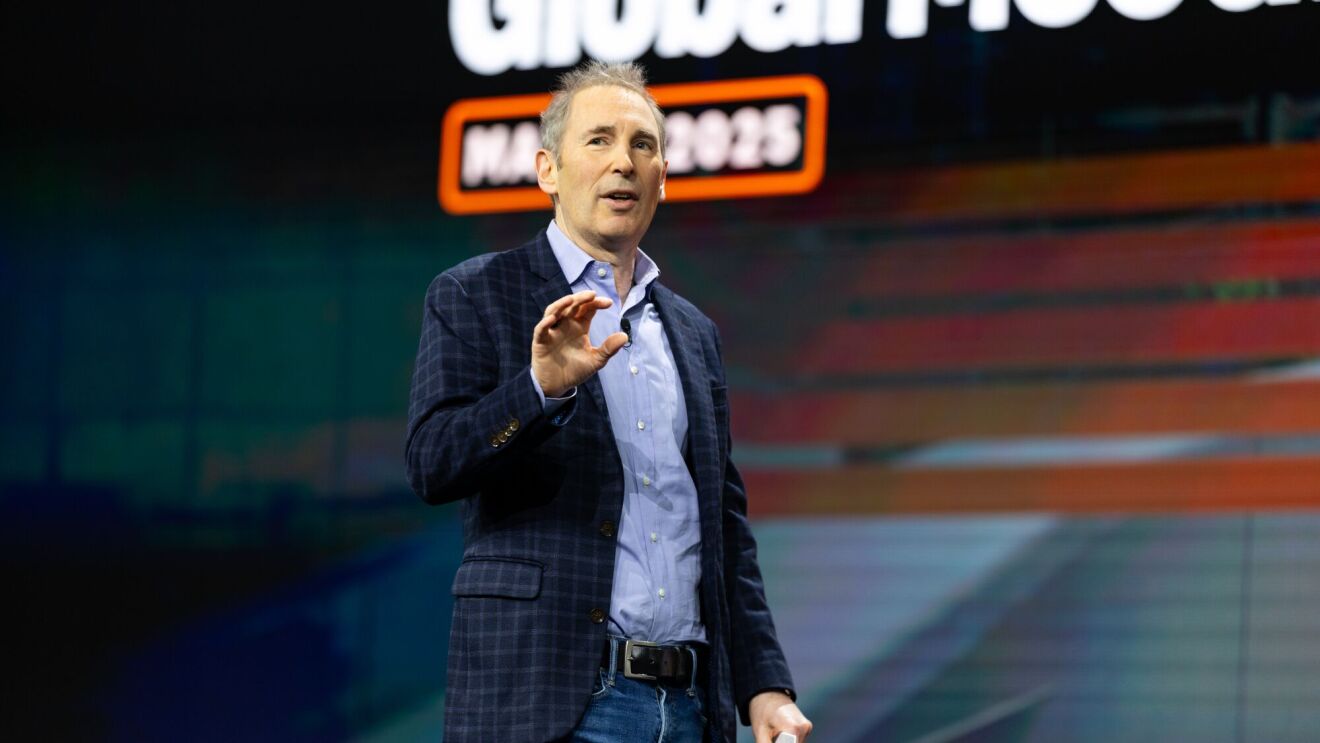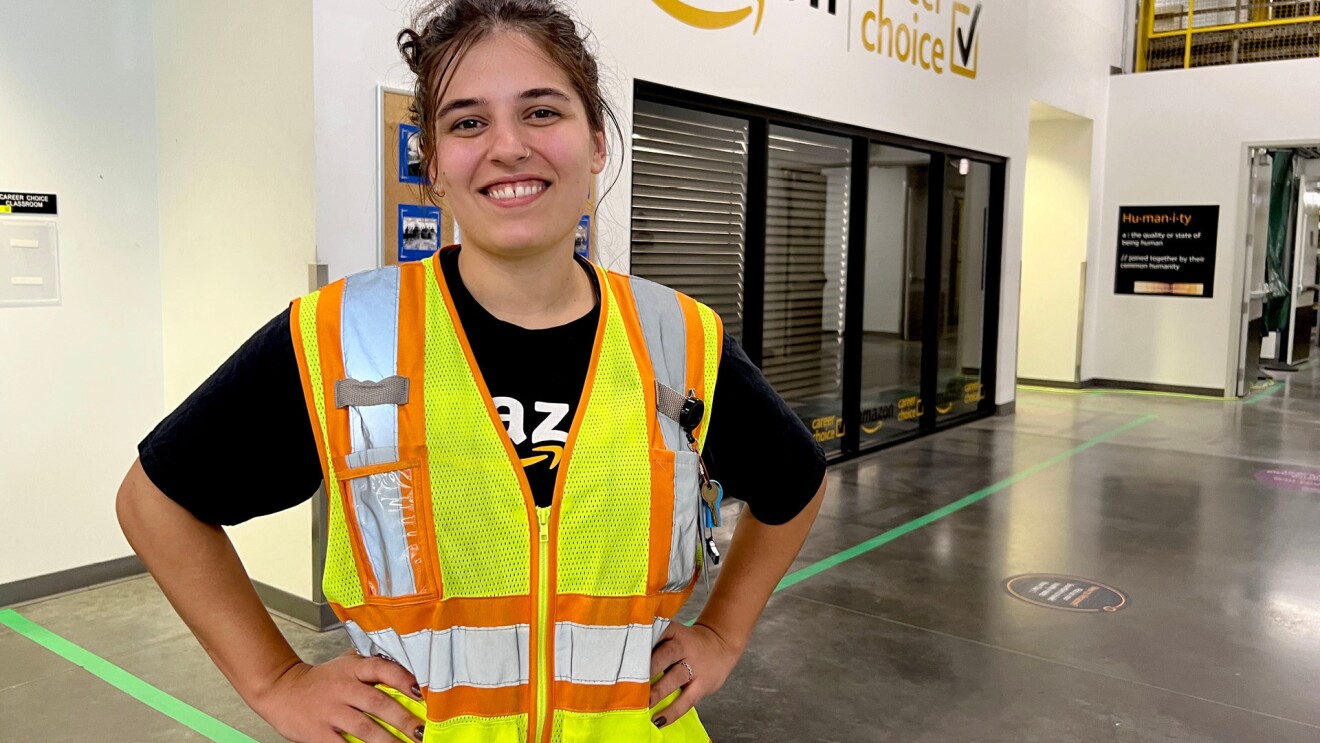Jeff Wilke, CEO worldwide consumer at Amazon, recently sat down with a group of 22 Operations leaders to discuss Amazon’s approach to leadership, including the company’s leadership principles, key questions about making decisions, the importance of being yourself, and how to make sure “scrappy” doesn’t lower our standards.
The Operations leaders in attendance were participating in Amazon’s Pioneers Program, which is designed to strengthen the leadership, strategic thinking, and technical skills critical to the future of Amazon’s Operations organization.
Rebecca Gansert, vice president of global specialty fulfillment, posed the questions to Wilke.
What do you wish every Operations leader knew?
I hope that everyone responsible for our culture would understand our leadership principles in detail, and understand how to use them when they have really tough problems to solve.
I hope that everyone responsible for our culture would understand our leadership principles in detail, and understand how to use them when they have really tough problems to solve.
I encourage everyone to know the leadership principles and use them. Use the language so we can teach people how we think about solving problems. Most of the answers for how we should behave as leaders are in the leadership principles.
Anything else?
The second thing I’d say is that people have to be themselves. There are a ton of different leadership styles. What’s most important is that you find the one that works for you, not that you mold yourself to be some kind of particular Amazonian leader.
The second thing I’d say is that people have to be themselves. There are a ton of different leadership styles. What’s most important is that you find the one that works for you, not that you mold yourself to be some kind of particular Amazonian leader.
I had a leadership mentor a long time ago in my first plant management job. A huge, burly guy. He was always a bit disheveled. His shirt was always untucked. Some of his buttons were unbuttoned. He could seem messy. But he was so authentic, the people at every plant he was responsible for loved him. He was a great mentor for me.
He pulled me aside one time and said he wanted to give me some advice. “I think you’re going to have a successful career. You have good leadership instincts, but sometimes I see you trying to polish yourself and be something you’re not because you think that’s more effective. Don’t go overboard doing that.”
You don’t have to be perfect. If you have something about you that’s memorable, reveal it because it makes you more authentic.
Jeff Wilke - CEO worldwide consumer at Amazon
You don’t have to be perfect. If you have something about you that’s memorable, reveal it because it makes you more authentic. Be yourself, even if it’s quirky or strange, as long as it’s respectful and not destructive. It’ll make you more endearing and seem more real.
When you’re considering a new idea, what questions do you ask?
We have some questions that we ask in all the businesses we’re in:
We have some questions that we ask in all the businesses we’re in:
- How big is the opportunity? Is it big enough to matter to a company of Amazon’s size?
- Can it succeed? Working on really big things that we don’t have a chance of succeeding in because we don’t have the right skills or assets is a waste of time.
- And if we succeed, is it worth it?
Let’s go back and look at the development of Prime. At the time we were debating two-day or one-day shipping. The marketing team wanted to make it one-day. As the leader of Ops, I had to intervene and say it should be a two-day program. And of course we could have made Prime a one-day program, but once we succeeded it wouldn’t have been worth it because we probably would have killed the company paying for air shipments.
That’s a case where we succeeded building Prime. And it was worth it.
What mechanism do you rely on to make sure you stay on Day 1?
One of them is making sure that I don’t approve resources before I see a PRFAQ (Press Release / Frequently Asked Questions document). For a new product, we need a PRFAQ, and we need it to be really good. And then we fund a person or two people to get started building a "two-pizza team." That’s a really good way to make sure we don’t start throwing hundreds of people at something in a less organized way.
One of them is making sure that I don’t approve resources before I see a PRFAQ (Press Release / Frequently Asked Questions document). For a new product, we need a PRFAQ, and we need it to be really good. And then we fund a person or two people to get started building a "two-pizza team." That’s a really good way to make sure we don’t start throwing hundreds of people at something in a less organized way.
Look at the Day 2 companies that we don’t want to become – really large bureaucratic companies. One of the things that characterizes them is too many people between the people in the most senior roles and the people doing the work. It doesn’t mean the roles in between are less valuable. But you have to get the right amount or you get the energy sucked up by self-preservation.
Look at your own org and ask if it’s as efficient as I know it could be. When you stop improving it because you say “Why should I suffer when that person over there isn’t?” that’s the beginning of the creep toward Day 2.
How should Amazonians think when they find things that don’t make sense?
A lot of leadership boils down to doing the right thing. If you’re doing the right thing as a leader who’s visible, you’re modeling behaviors. Other people will see you do the right thing and they will admire you and be more likely to follow you. I had a leadership mentor who used to say all the time that followers choose their leaders. Managers may get to choose the people they manage, but followers choose their leaders. Followers choose leaders they admire. If you can hold up a mirror every day and be proud of the choices you made, you’ll have had a pretty effective day as a leader.
A lot of leadership boils down to doing the right thing. If you’re doing the right thing as a leader who’s visible, you’re modeling behaviors. Other people will see you do the right thing and they will admire you and be more likely to follow you. I had a leadership mentor who used to say all the time that followers choose their leaders. Managers may get to choose the people they manage, but followers choose their leaders. Followers choose leaders they admire. If you can hold up a mirror every day and be proud of the choices you made, you’ll have had a pretty effective day as a leader.
Here’s how that applies to your question. We say pioneers are people who wander the world notice things that aren’t right and fix them on behalf of customers. Every time you get to improve something, you have a choice to either blow it off and walk by, or to decide it’s important enough to make the change. At the end of the day, you look at yourself in the mirror and say, did I blow off too many of those things because I was doing things that didn’t matter. Or did I choose to do the right thing?
We recently added "Learn and Be Curious" to Amazon’s leadership principles. I’m curious about the thought process behind adding that new principle.
The most important driver of that addition was the notion that we were getting very good and successful, and the accompanying fear that we would become complacent.
The most important driver of that addition was the notion that we were getting very good and successful, and the accompanying fear that we would become complacent.
A key source of complacency is laziness about learning. We were just talking about how companies transition from Day 1 to Day 2 companies. One thing that happens at successful companies is that executives start to believe their own press. You might say that’s covered by the line in the Earns Trust principle that says “leaders don’t believe their body odor smells of perfume.” But that’s a negative. It’s not instructive. It doesn’t address how to avoid complacency.
The “how” is to focus on constant learning and staying curious about all things. Curious about defects, curious about things in the world that aren’t right and you can improve, inventing for customers, the relationships among the people you lead. That’s why we added “Learn and Be Curious” – a “how” among the leadership principles. I’m glad we did.
In operations leadership, we face the question of launching something scrappy, and whether that creates the risk of a substandard product. How do you think about that question?
When I was an undergrad, I was obsessed with the question of fast versus slow thinking. How much of the stuff your brain does should be intuition, or fast thinking? And how much should be slow thinking: the really introspective, logical thinking you do to put together strategies?
When I was an undergrad, I was obsessed with the question of fast versus slow thinking. How much of the stuff your brain does should be intuition, or fast thinking? And how much should be slow thinking: the really introspective, logical thinking you do to put together strategies?
The best way for me to make sure the scrappy things I launch meet a high bar is to have assembled, over the years, a bunch of experience to apply as intuition, or fast thinking, to make these decisions. And then I apply one piece of slow thinking, which is reflection. Right after I launch something – I used to do it when I was driving home – I would think about the things I’d launched that day in a scrappy way and I’d ask the question: Is it a good product?
Trending news and stories
- Amazon unveils 7 new robots powering faster, safer deliveries: Go inside our most innovative delivery station yet
- Introducing Vulcan: Amazon's first robot with a sense of touch
- This new AI tech will make sorting packages easier for Amazon's delivery station employees
- How Amazon helps data center communities thrive










